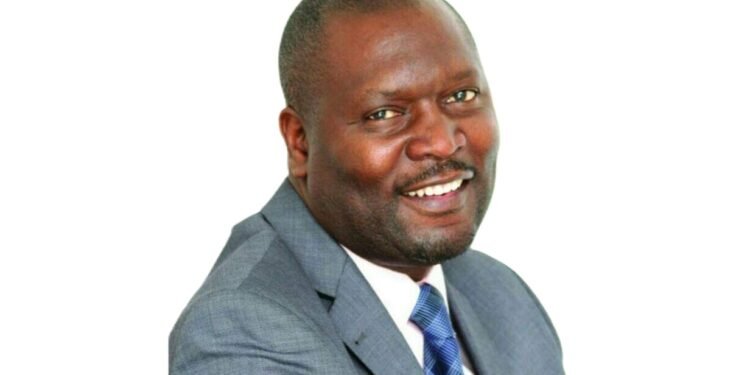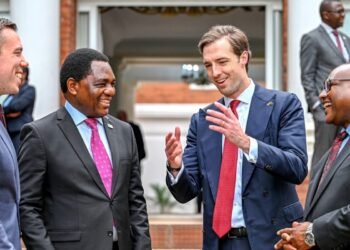SOME CHIEFS CAPTURED
They may have been bought to keep silent, says Dr Mwelwa
….. It is legally contentious, deeply uncultured and morally offensive for the government to insinuate that a former head of state can be buried with or without his family.
By Thandizo Banda
SOME chiefs may have been bought to keep silent on serious national matters on which their voices are expected to be heard, says Dr Lawrence Mwelwa.
Dr Mwelwa, a political scientist, academician and entrepreneur, told The Mast yesterday there was an increasing public perception that some chiefs had been captured by the politicians in the current administration to either keep silent or parrot official government positions only.
“It is becoming increasingly difficult to ignore the perception that some of our traditional leaders may have been captured politically by President Hakainde Hichilema’s United Party for National Development (UPND) administration,” he said.
Some chiefs in Southern Province have reportedly appealed to the Lungu family to dialogue with government to resolve the impasse over the burial of the former president and ensure he is buried in Zambia with a state funeral.
The traditional leaders have, however, not commented on Attorney General Mulilo Kabesha’s statement on ZNBC TV last Sunday that government would go ahead to bury Lungu’s body even without the family if the standoff remained unresolved.
Dr Mwelwa said it was worrisome to witness how chiefs were shying away from commenting on such key national issues, creating a feeling of betrayal among sound Zambians.
He said Zambians expected to hear amplified voices of unity from traditional leaders in the wake of the numerous national challenges, including the burial dispute between the government and Lungu’s family yet little was being heard from traditional leaders.
“It is legally contentious, deeply uncultured and morally offensive for the government to insinuate that a man, let alone a former head of state, can be buried with or without his family,” Dr Mwelwa said.
He said ordinarily, the elders and traditional leaders would have been the first to advise those running the government on the cultural aspect of burial, which was not just an act of covering the body with soil but a sacred closure for the family.
“No man is laid to rest without the hand of his blood [family],” Dr Mwelwa said.
“Such words [as those coming from Kabesha] would never have been left to politicians or courtrooms alone. Culturally, to proceed without the family is to cut the cord between the living and the dead, a cord our traditions teach must remain unbroken,” he said.
Dr Mwelwa said the silence of many chiefs in the face of such a statement as the one from Kabesha made people question whether their cultural authority had been subdued by political influence.
“Politically, it is also clear that this prolonged funeral dispute is not neutral. The delay has an undeniable effect: it stalls the opposition’s momentum, diverts its focus and keeps its leaders tied to an emotional and legal battle rather than the 2026 agenda,” he said.
Dr Mwelwa alleged that the State might be quietly benefiting from the distraction and disunity that might surround Lungu’s death and funeral.
“Yet wisdom teaches us this: a house divided by grief and quarrels cannot prepare for the harvest ahead. Chiefs, as the custodians of our customs, must reclaim their role and remind both State and society that no leader can be buried in honour unless his family is part of the last journey. Only then can we heal, regroup and prepare for the political future without bitterness clouding our unity,” Dr Mwelwa said.
Lungu died in Pretoria, South Africa, on June 5 but his remains are yet to be buried because of a legal battle in South African courts over who should be in charge of the burial.
Last week, the Pretoria Division of the Gauteng High Court ordered the Lungu family to immediately surrender the body to the Zambian government for a state funeral and burial back in Zambia.
This was after Kabesha sued the family on behalf of the Zambian government demanding to be given the authority to repatriate and bury the body against the wishes of the family.
But the family immediately appealed the court’s judgement and orders technically staying the repatriation and burial, which have to now wait for the outcome of the appeal.

























